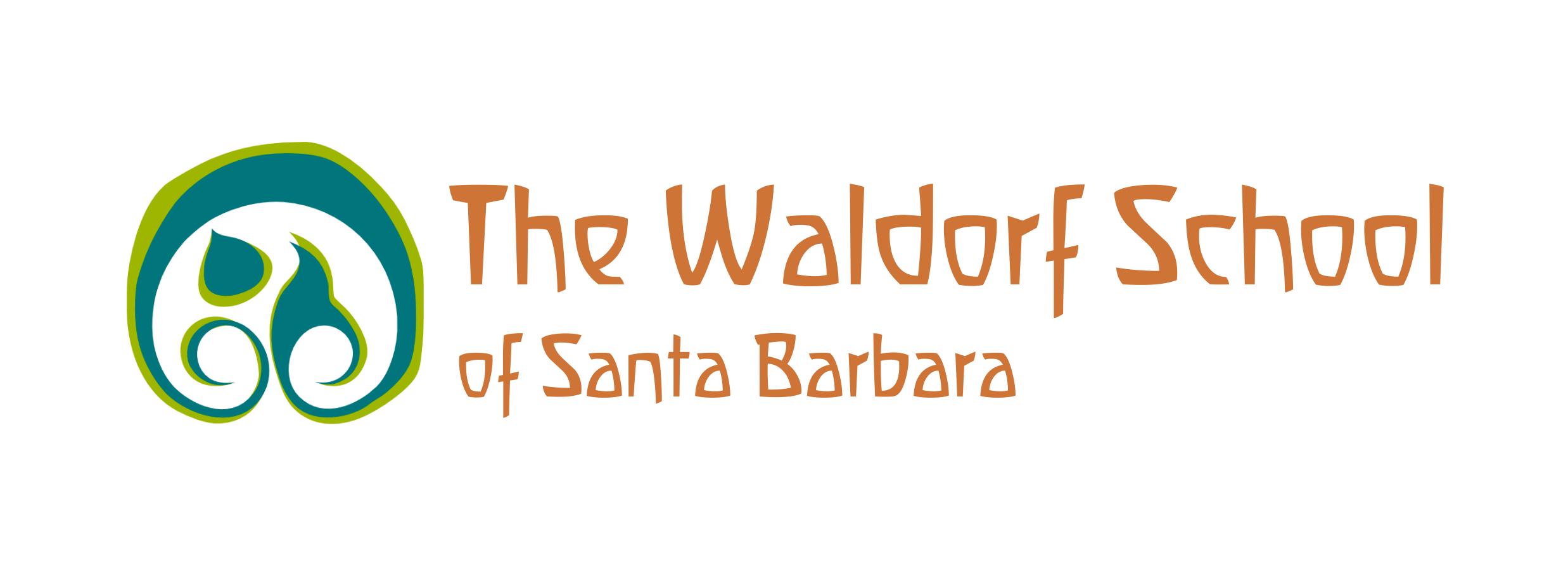About Our School
Mission
The Waldorf School of Santa Barbara is committed to providing a healthy, broad, reverent education that honors the head, heart, hands—the whole—of the child. Drawing on a rigorous, developmentally appropriate, and beauty-attuned curriculum, our Waldorf education cultivates the full flowering of the individual student and the community at large, understanding the profound interdependence of both. The Waldorf School of Santa Barbara seeks to not merely reflect society but help guide and shape it.
Overview
Started by Rudolf Steiner in Stuttgart, Germany in the early 1900s, the Waldorf movement is known as the fastest growing education in the world. Today there are more than 1100 Waldorf schools in 83 countries. We are proud to be part of this groundswell and proud, moreover, to “not merely reflect society but help guide and shape it” (words from our mission statement). Here is a summary of what distinguishes us from other schools in the Santa Barbara area:
Our education is a holistic education, one that views happiness—or what the Greeks called eudaimonia, human flourishing—as wholeness. In our “headist” modern culture, we at WSSB don’t privilege mathematics above the violin, reading and writing above singing, gardening, and play. These human activities are of equal worth; furthermore, they are of a piece: the fostering of one fosters the other.
Our education is one of technological prudence. In this sped-up world bombarded by the digital, we believe a spare approach to high technology in the classroom benefits the child. Vicki Larson, in her essay “Waldorf Education and the Use of Technology," explains the rationale for such prudence: “Since a primary goal of Waldorf education is to ground students in their bodies, in three-dimensional unmediated space and in human interaction, the schools aim to offer students unmediated experiences." And electronic technology, Larson asserts, can undermine that primary goal.
Our education is arts-oriented. At WSSB industry is not separated from art. We integrate art into all of our classes, knowing that art-making—or what Ellen Dissanayake terms “making special”—is a crucial human act which nourishes “social-emotional development,” enlivens learning, and brings joy and wholeness to the child.
Our education is rigorous yet developmentally appropriate. The child, we believe, develops in an archetypal sequence of approximately seven-year phases. Each phase has unique physical, emotional, and cognitive needs. A thorough understanding of these phases is foundational for our teachers. At WSSB, we strive to expose our children to what nourishes and stretches them, not what frays and shuts them down.
Our education is spiritual. Because WSSB seeks to waken in children a reverence for this mysterious, good, and beautiful world, we consider our education spiritual. That said, there are no dogmas we expect children or families to adopt.
Our education is earth-honoring. At WSSB we honor the earth by stewarding our particular place—our campus in Goleta, California—with its soil, its seasons, its budding orchard and vegetable gardens, and the non-human creatures who dwell here. Says D.H. Lawrence, “This is what is the matter with us: we are bleeding at the roots because we are cut off from the earth and sun and stars.” Here at WSSB we aim to redress such earth-alienation.
Our education employs a “One-Teacher Paradigm.” The Spring Garden Waldorf School describes this practice thusly: “The key to education is human connection, and in Waldorf education this is uniquely fostered by students typically having one main teacher for a portion, or all, of their elementary school years. While this custom seems strange in modern times, it was common in the past within small communities. Waldorf teachers see many benefits to preserving this traditional model; it lends itself to deep human connection, a more personalized education, a cohesive classroom environment, and more focused learning overall.”
Our education is rich with festivals. At WSSB we strive for an “approach of reverence” in all we do. In keeping with such an approach, we hold various festivals throughout the year. These festivals slow us down to help us remember primary realities: the importance of being together, the everlasting wonder of things. Says Clement A. Miles, “It is difficult to be religious, impossible to be merry, at every moment of life, and festivals are as sunlit peaks, testifying, above dark valleys, to the eternal radiance."
Our education strives to protect childhood, to let children be children. At WSSB we foster a loving, joyous, humor-filled atmosphere, one unfreighted by the various adult concerns of the day. "If we want children to flourish, to become truly empowered,” says writer and teacher David Sobel, “then let us allow them to love the world before we ask them to save it."



